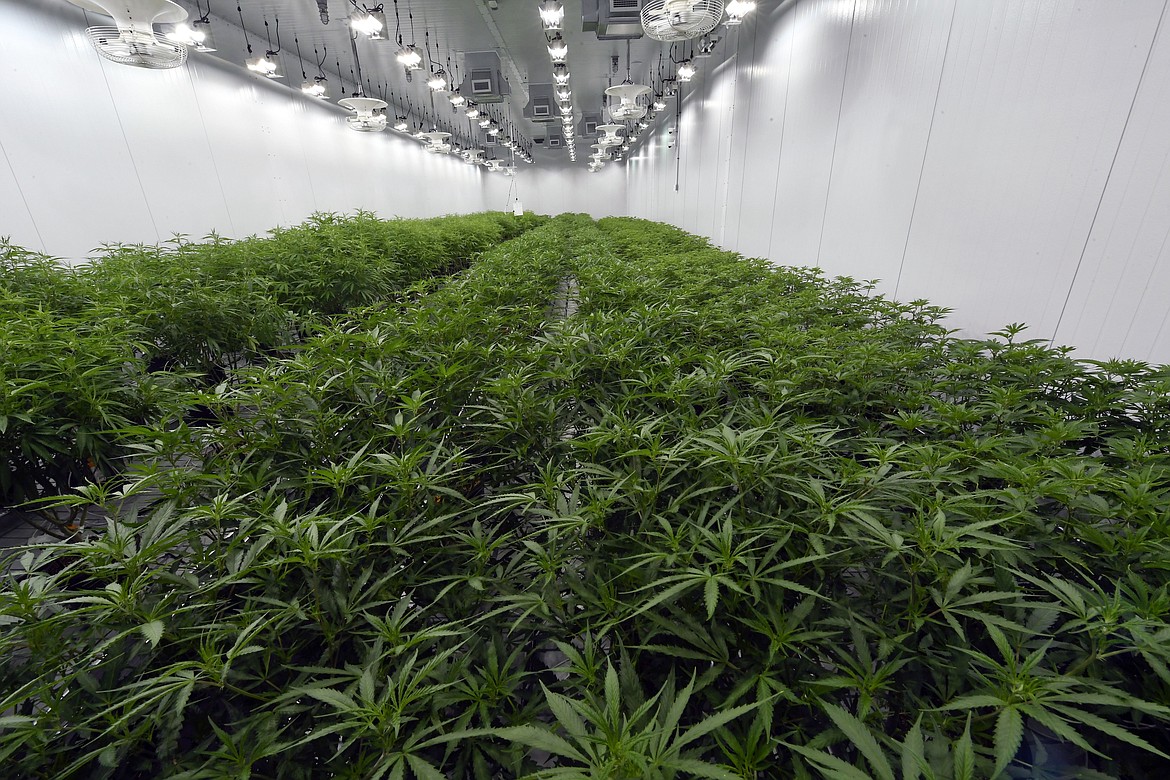Kalispell restricts pot dispensaries to industrial zones
The Kalispell City Council on Monday approved new rules regarding marijuana, restricting the sale, cultivation and manufacture of marijuana to the city’s industrial zones.
Council members Chad Graham, Tim Kluesner, Ryan Hunter, Sam Nunnally and Kari Gabriel, as well as Mayor Mark Johnson, voted for an amended motion that approved marijuana businesses in the industrial zones.
Council members Sid Daoud and Kyle Waterman voted against the motion.
The need for the motion was spurred by a state ballot initiative during the 2020 election. Voters legalized recreational marijuana throughout the state of Montana, which triggered the necessity for municipalities to craft their own rules before the start of 2022.
Another ballot initiative would have to be passed by electors in order to roll back the legalization of marijuana, statewide or in individual areas.
As a result, the Kalispell City Council started discussions this summer about where marijuana businesses could operate in the city.
Two weeks ago, the council confronted an ordinance that would have allowed dispensaries to open in industrial and business zones, as long as those businesses met a 300-foot buffer from schools, parks, churches and residential zones.
But Mayor Mark Johnson proposed an amendment to eliminate the business zone allowance and limit marijuana businesses only to industrial zones. The proposal narrowly made its way to a second reading Monday night.
On Monday, the council debated whether marijuana dispensaries can be categorized similarly to liquor stores. Nunnally, for instance, saw liquor stores as more restrictive than marijuana dispensaries because of state licensing rules around liquor stores. Meanwhile, Hunter was of the opinion marijuana dispensaries should be compared with grocery stores or any business that sells alcohol or cigarettes.
The council never reached a consensus on the comparison between marijuana and alcohol businesses. Many of those on the prevailing side of the debate argued the conversation could be revisited once the city receives firmer guidelines from the state.
At one point on Monday, the council considered a less restrictive motion proposed by Daoud for the city to reincorporate business zones into the allowed areas for marijuana businesses, but the motion failed.
Later, Hunter proposed a more restrictive motion to limit new businesses selling alcohol and cigarettes to the city’s industrial zones, in order to “point out the hypocrisy that exists here.” That motion failed for a lack of a second.
The motion that eventually was approved seemed as though it would avoid triggering any legal liability for the city from the state. When the council held its first reading of the ordinance, there was language that required municipalities to avoid “unduly burdensome” marijuana rules, but those have since been removed.
Four people spoke in favor of dispensaries in the downtown area, urging the council to reconsider the amended motion, but it passed nonetheless.
Reporter Bret Anne Serbin may be reached at 406-758-4459 or bserbin@dailyinterlake.com.


